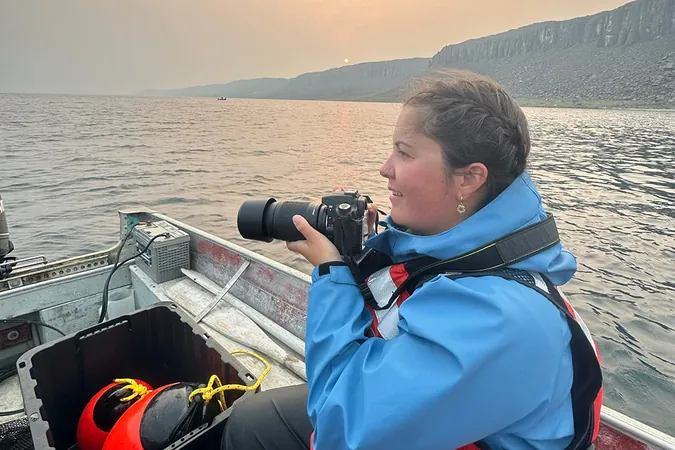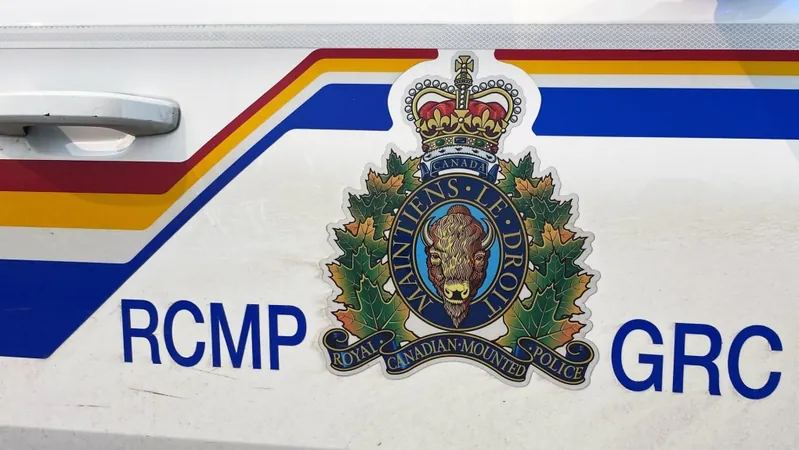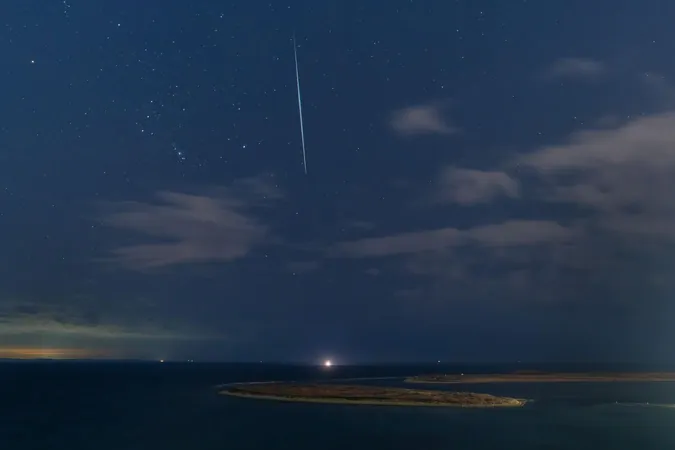
From Marine Bioacoustics to Fire Research: The Inspiring Journey of Karlee Zammit
2024-11-06
Author: Michael
In a whimsical twist that could rival any Pokémon adventure, Karlee Zammit's friends fondly tease her about "catching them all." But rather than mythical creatures, they refer to her pursuit of knowledge and experience across the classic elements of nature—fire, earth, water, and air—as she embarks on her promising career.
This fall, Karlee Zammit will proudly walk across the convocation stage at the University of Victoria (UVic) to receive her Master of Science degree in Marine Bioacoustics and Artificial Intelligence. Her journey to this accomplishment started just five years ago when she earned her Bachelor of Science degree in Physics from the same institution. Between her two degrees, she embraced the earth element by gaining hands-on experience working at lodges in picturesque New Zealand and serving as a bear research technician in the Broughton Archipelago.
Diving into the water element, Zammit took on an exciting role as a project scientist for JASCO Applied Sciences, where she contributed to essential animal movement modeling. Her work focused on producing significant statistics about sound level exposure for various marine species. Yet, after a few years, she felt an urge for deeper specialization, prompting her to explore master's degree options.
"I realized that many intriguing job postings I came across required a master's degree, so I reached out to my former professors," Zammit shares. Her inquiries ultimately led her back to UVic, where she dove deeper into the aquatic realm. Under the guidance of esteemed academics Stan Dosso and William Halliday, she focused her research on the Arctic ringed seal, a species that has grown increasingly vulnerable due to climate change.
Applying machine learning techniques, Zammit developed a groundbreaking ringed seal detector in partnership with the Wildlife Conservation Society Canada. This innovative tool has the capability to sift through vast datasets of ocean sounds and accurately identify vocalizations made by ringed seals. "Entering my master's, I had little experience with deep learning," she admits. "Thanks to supportive advisors, I was able to apply what I learned. While the device sometimes confuses noise from ice and water, it's a significant step forward."
Her detector will play a crucial role for researchers monitoring the impact of Arctic noise pollution on ringed seals, which are considered a species of concern as changing climate conditions trigger longer ice-free periods and increased shipping traffic in the Arctic, further complicating the seals’ communication and feeding strategies.
Though her research did not require a physical expedition to the Arctic, Zammit had an invaluable opportunity during a two-week trip to Ulukhaktok to attempt capturing ringed seals. Her team engaged in hands-on data collection even though their attempts to catch seals were unsuccessful, allowing her to gather vital acoustic information for her project.
Fast forward to graduation, Zammit has already shifted her focus to her next endeavor: tackling the challenges of fire detection as a fire research scientist with the Government of British Columbia. Here, she's applying satellite technology to refine algorithms that detect wildfires—an issue that has gained urgency with the rise of climate change.
"My physics background has been an asset," she explains. "Most scientists in fire research come from ecological backgrounds. My exposure to deep learning through my master's program has enhanced my employability in various fields." Rather than following a conventional application route, Zammit leveraged her master's program to network with professionals, which ultimately led her to her current position after a fruitful conversation with a government fire scientist.
Looking toward the future, Karlee Zammit is enthusiastic about the road ahead. She envisions a career rich with variety—one that balances her love for the environment, sustainable practices, and perhaps even her passions for whale watching and driving water taxis. As she continues her journey, she dreams of a day when she can weave together her interests and contribute to conservation efforts while mastering the elements, perhaps even completing her quest to "catch them all."
Stay tuned to see where Zammit's remarkable career path leads next—after all, in today’s rapidly changing world, the challenge of understanding and protecting our environment has never been more critical.









 Brasil (PT)
Brasil (PT)
 Canada (EN)
Canada (EN)
 Chile (ES)
Chile (ES)
 España (ES)
España (ES)
 France (FR)
France (FR)
 Hong Kong (EN)
Hong Kong (EN)
 Italia (IT)
Italia (IT)
 日本 (JA)
日本 (JA)
 Magyarország (HU)
Magyarország (HU)
 Norge (NO)
Norge (NO)
 Polska (PL)
Polska (PL)
 Schweiz (DE)
Schweiz (DE)
 Singapore (EN)
Singapore (EN)
 Sverige (SV)
Sverige (SV)
 Suomi (FI)
Suomi (FI)
 Türkiye (TR)
Türkiye (TR)